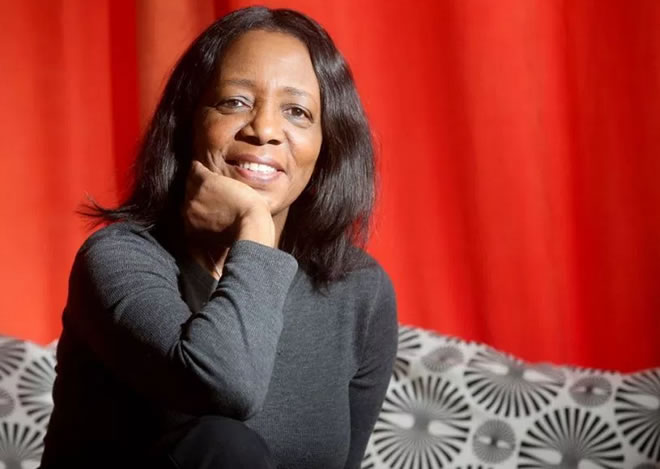
Blair Crawford
Wednesday February 13, 2019

Insp. Isobel Granger led a team of Ottawa police officers tasked with improving relations with the city's racialized communities. Julie Oliver / Postmedia
Fear and mistrust of Ottawa police and public concerns about police leadership, accountability and transparency are the “overarching” themes of a report on race relations that was so stressful for officers doing the study that they had to have special counselling to deal with abuse from the public and their fellow cops.
“The vast majority of officers go out there every day with the idea that they’re going to do the best job that they can,” said Insp. Isobel Granger, who led the seven-member team and wrote the final report that was released this week. “So, when the community comes to you and says you’re not treating us fairly, it leaves a questions mark and you wonder, ‘What am I doing?’”
The 146-page final report of the Ottawa police Outreach Liaison Team was completed more than a year ago, but was only made publicly available this week on the Ottawa police website. The team was created in August 2016 in the weeks after the death of Abdirahman Abdi with a mandate to engage with the city’s racialized community “and rebuild the community’s trust and confidence in the Ottawa Police Service.” It spent a year researching the report and met with approximately 1,000 individuals and community groups.
It identified 32 issues, including everything from systemic barriers inside the police service affecting women, minorities and LGTBQ officers, complaints about the service’s “ineffective” and “out of touch” Community and Police Action Committee to the number of unsolved homicides in the Somali community.
The report was prepared as an internal document for police, but was shared last year with some of the community leaders who had been consulted. It is unusually frank for a public document, includes sections on how the team was brainstorming about public reaction into findings of the province’s Special Investigations Unit on Abdi’s death. (The SIU charged Const. Daniel Montsion with manslaughter, assault with a weapon and aggravated assault in Abdi’s death. His trial is scheduled to resume Feb. 25.)
The report also includes unflinching criticisms the outreach term heard such as “attitudes surrounding black youth need to change” and “police should stop assuming people are LIARS.” Police senior officers were criticized by the public for not attending public meetings, while police officers themselves criticized “racism and/or ineptitude or incompetence in selection and promotion processes.”
Granger wouldn’t say if she thought those criticisms were valid. What was important was that people felt that way.
“I come from the standpoint that your perception is your reality,” she said. “We need to know what that perception is because, if there is a misunderstanding, we need to work together to create a common understanding … common values. And, if it’s for real, we have to work together to change the reality.”
“I’m in the police service, so I will see things differently, (but) it’s not what I feel that’s important, it’s what the community feels that’s important.”
Granger said progress had been made since she delivered her final report last January. Last summer, police launched the new Community Equity Council with the aim of strengthening the relationship between police and Indigenous, faith-based and racialized communities. As well, Granger’s team’s report has been adopted as a foundation document in the police service’s multi-year action plan for Equity, Diversity and Inclusion.
“There’s a lot being done. Sometimes meaningful change appears not to be happening and maybe to some people it appears slow — and maybe it is slow — but we want meaningful change to happen. I’d rather not rush, but I want to see change, too.”
Though the team was formed after Abdirahman Abdi’s death, it found itself dealing with other controversies and tragedies. In October 2016, a veteran Ottawa officer pleaded guilty to police act charges after he was identified making racist comments online about the death of Inuit artist Annie Pootoogook. That same month, a study of three years of data about Ottawa police traffic stops revealed the stops were “consistent with racial profiling.”
It all took a toll on Granger and her team, which was “on the receiving end of hostile treatment” from community groups.
“In the course of their day-to-day work, the officers were frequently subjected to verbal abuse and/or challenging behaviours and these experiences, which began to take a personal toll on the officers,” the report says. “They also expressed that coming into work was becoming difficult as they were being subjected to similar behaviours internally.”
The team developed a support plan, including team debriefings and skills training to help them cope. Some of her officers were working 18-hour days on the research, Granger said.
“We were listening to a lot of raw emotions, internally and externally. It’s very difficult not to be affected by it … Fortunately, the individuals members went on to healthy next steps in their career, but it wasn’t easy,” she said.
“When one person is put under scrutiny, the whole police service is put under scrutiny. What people don’t realize is that, when something traumatic happens, it affects all of us, inside (the police) and outside.”
The full Outreach Liaison Team Final report can be downloaded from the Equity Diversity and Inclusion page of the Ottawa Police Service website.
Twitter.com/getBAC